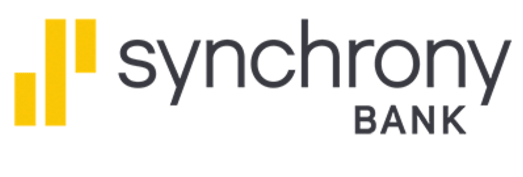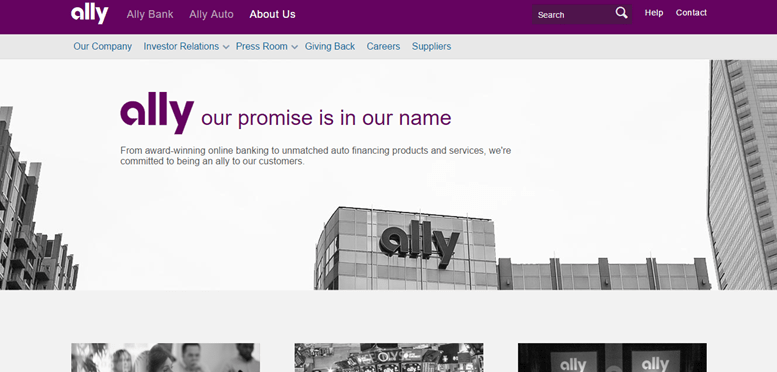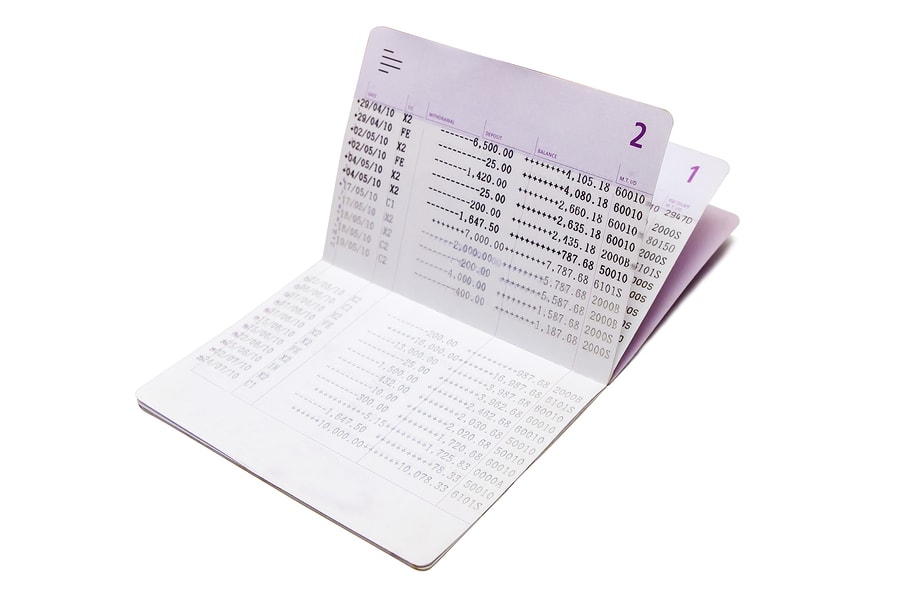Intro: Synchrony vs. Ally Bank (Choosing between Synchrony Bank vs Ally Bank)
Some banks may offer lower rates but provide world-class customer service and convenience while other banks offer no-frills products with high-yielding rates. You may be wondering, “How exactly does choosing Synchrony Bank vs Ally Bank affect me financially?”
This is a very valid question. Imagine you had $10,000. This money can either sit in a checking account where it is easily accessible, or it could go into a savings account and earn interest. At 1% interest compounded annually, $10,000 would earn an additional $100. A similar account with 1.5% interest would earn $150 in interest at the end of the year.
Though $50 is not a huge difference, imagine if you had $100,000. Would $500 make a difference in choosing Sychrony Bank vs Ally Bank? What if you were a small business with a reserve of $500,000? Would earning $5,000 annually compared to $7,500 affect your decision in choosing Ally vs Synchrony?
There are many Synchrony Bank reviews and many reviews about Ally products available online. However, Synchrony reviews and Ally reviews will only cover the products offered by each bank – not a comparison of the consumer’s needs and the benefits of using one over the other.
Below, we present a comparison of Synchrony Bank vs Ally Bank to supplement any Synchrony or Ally reviews online and help consumers make an informed decision about online banking.
See Also: Best Banks in Indiana | Ranking of Banks in Indianapolis, Fort Wayne, Evansville
About Synchrony Bank (Synchrony Review)
Synchrony Bank, formerly General Electric Capital Retail Finance Corporation (GERFC) prior to raising $2.88 billion in its initial public offering, is a public American bank trading on the NYSE. Synchrony Bank offers consumer financing products including credit, promotional financing and loyalty programs, installment lending, and FDIC (Federal Deposit Insurance Corporation)-insured savings products. FDIC-insured savings products are products that are insured to the maximum amount by the Federal government.



Image source: Synchrony Bank
Synchrony is currently the largest benefactor of private label credit cards in America with a market share of 42 percent of the private label credit card market. Synchrony boasts a private label credit cards client list of brand name clients such as Amazon, Walmart, Lowe’s, BP and Gap. Roughly 80% of Synchrony’s loans are from private label credit cards. To read more about Synchrony Bank, check out our AdvisoryHQ Synchrony Bank review.
About Ally Bank (Ally Review)
Ally Bank is an American bank with total assets of $111.3 billion at December 31, 2015. Ally Bank is owned by Ally Financial Inc., and similar to Synchrony, Ally Bank was formed from the financing department of a giant American retailer (General Motors). Despite their roots in auto financing, Ally Bank has branched out to operate primarily as a consumer bank that interacts directly to customers.
Products offered by Ally Bank products include certificates of deposit (CDs), online savings accounts, money market accounts and checking accounts, though Ally Bank continues to offer financing and loans.
In 2014, Ally beat out Wells Fargo as the top auto lender in America. However, due to the declining economy and the landscape of subprime auto lending, Ally was one of the banks that received a bailout by the U.S. government during the 2008 financial crisis. To read more about Ally Bank, check out our AdvisoryHQ Ally review.



Image source: Ally
Don’t Miss: Top Banks for Students | Ranking & Review
All-in-One Change Management Tools
Top Rated Toolkit for Change Managers.
Get Your Change Management Tool Today...
Synchrony vs Ally: Personal Banking
Ally and Synchrony both offer banking products. Ally bank does not have any branches and is an entirely online operation. Because of this, their operational costs are low, translating into better rates and fees. Similarly, Synchrony also offers a solely online operation; however, they do not offer checking accounts (meaning there are also no free debit MasterCards or personal checks).



Image source: Big Stock
Synchrony reviews also mention the lack of quality customer service in banking, as the personal banking website and technology is not as up-to-date and user-friendly as other online banks. Compared to Synchrony, Ally reviews offer positive appraisals of Ally’s personal banking products due to the supplementary products provided by the bank with the opening of a checking account. Benefits about Ally checking accounts include a free debit MasterCard, free checks, unlimited ATM withdrawals, plus reimbursement of up to $10 per month of third-party fees.
Related: Best Banks for Bad Credit | Ranking & Review
Synchrony vs Ally: Banking Rates and High Yield Rates
Both Ally and Synchrony are online banks. Regardless of choosing Synchrony Bank vs Ally Bank, you will have competitive rates because these banks don’t have the high operating expenses that brick-and-mortar banks do. These cost savings from operations trickle down to the consumer in the form of low rates.
Ally Bank checking accounts offer a high-yield rate on balances over $1,500 (APY 0.60%), while balances of less than $1,500 earn a rate of (APY 0.10%). Savings accounts offered by Ally Bank yield 1% interest. Synchrony Bank offers 1.05% on any balance deposited in their High Yield Savings Account.
On just rates alone, when comparing Synchrony Bank vs Ally Bank, Synchrony Bank offers the more competitive rate. However, Synchrony only offers savings accounts, not checking accounts.
When opening bank accounts, it is better to open both a savings and a checking account if possible because savings account rates are generally higher than rates offered by checking accounts.
These lower rates are a result of lower costs associated with operating a savings account. On the other hand, having a checking account allows for better access of your funds on a daily basis through ATMs, debit cards, and personal checks. Checking accounts are also extremely useful for small businesses that are paying expenses on a daily basis.
Synchrony vs Ally: Credit Cards
When it comes to making decisions, such as where to put your money or how to finance certain large expenditures (such as your home or car), many Americans don’t realize that there are also financing factors associated with these large purchases.
Financing occurs any time a consumer needs to incur debt. There are a number of products that can be used for financing, such as loans, mortgages, or credit cards. Making a decision on Synchrony vs Ally is important because of these rates and the discounts you could be eligible for. These are direct cost-savings for the consumer as well.
Popular Article: What Is Goldman Sachs and What Does It Do? Get the Facts About Goldman Sachs (Reviews and Ranking)



Credit Cards: Synchrony Review
Outside of their private label credit card products, Synchrony Bank offers a line of credit cards, including CareCredit and the CarCare credit card intended for auto services and maintenance and elective healthcare procedures or services.
These credit cards offer promotions such as financing options and discounts at partner locations (such as Lowe’s and Amazon). Though opening Synchrony credit cards is easy, Synchrony reviews have mentioned the poor customer service and intense volume of collection calls on late payments.
Credit Cards: Ally Review
Ally Bank also offers credit card products. Recently, Ally Bank launched the Ally CashBack, its first cashback credit card. Though Ally offers fewer perks besides cashback, Ally reviews are highly satisfied with the low interest rates and high-tech, user-friendly interfaces.
Read More: MySavingsDirect Review – What You Need to Know Before Using MySavingsDirect (Reviews)
Ally vs Synchrony Review: The Verdict
Overall, online banks offer the best rates at the cost of the convenience of in-person banking. Whether you choose Ally vs Synchrony, this is the tradeoff.
As a consumer, when choosing between Synchrony Bank vs Ally Bank, it is important to understand your own personal needs when it comes to banking. A few questions you can ask yourself prior to choosing a bank are:
- How often do I expect to deposit, withdraw, or transfer funds?
- How important is managing my accounts online?
- Do I want all of my accounts in one place?
- How important are high rates?
- Would I be willing to give up 0.01 – 0.05% for convenience?
If you are looking for a no-frills, straight-up saving account with high yield, and not much need for daily transactions, choose Synchrony Bank over Ally Bank; Synchrony provides the highest-yield with the lowest amount of convenience (since they only have a savings account).
If having all of your accounts in one place and being able to manage and move your funds easily is something that you value, choose Ally over Synchrony; Ally provides competitive rates, convenient daily banking, and additional perks such as free checks.
Remember, both Synchrony and Ally offer credit card options. Credit cards not only provide convenient financing, but they can also offer many perks and discounts. When choosing between Bank credit cards, here are some questions to ask:
- How important are benefits and discounts?
- Do I need coverage for health care, vision care, dental, or auto maintenance?
- Do I expect to incur late payments? (If so, interest rates would be an important factor to consider when choosing a credit card.)
- Do I want my banking and my debt to all be consolidated into one place?
Choose credit cards for diversity in the credit card benefits, promotions, and partner discounts. Choose for easier online management and payment of debt.
AdvisoryHQ (AHQ) Disclaimer:
Reasonable efforts have been made by AdvisoryHQ to present accurate information, however all info is presented without warranty. Review AdvisoryHQ’s Terms for details. Also review each firm’s site for the most updated data, rates and info.
Note: Firms and products, including the one(s) reviewed above, may be AdvisoryHQ's affiliates. Click to view AdvisoryHQ's advertiser disclosures.





